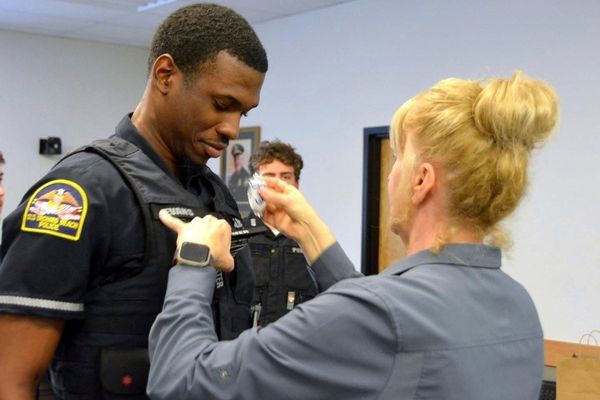
What does your role involve on a day to day basis?
I head up an international team working with technology startups and global multinationals that want to build cloud-based business applications. Our goal is to match businesses with the technology they need to supercharge their growth, working with companies like Fairsail, Click Software, Lumesse, Anomaly42 and many more.
My job involves a lot of travel, so it’s not uncommon for me to rack up six countries in less than two months. On a regular day in London I’ll meet with entrepreneurs and development teams, executives and partner exec boards to walk through company strategy and growth levers, attend board meetings for the charities and startups I am involved with and finish the day by taking calls from the US.
How did you get to where you are today?
Hard work, good advice and support from mentors and the people I’ve worked with along the way. If you’re willing to work hard then there is no limit to how far you can go in tech. Technology is ever changing and therefore quite exciting: this has pushed me to always strive harder and go further.
Unfortunately many women are often put off entering the industry by a lack of role models and an incorrect perception of tech as geeky and boring. The solution needs to focus on training and education at a young age and recruitment and development during a woman’s career. During their formative years girls need to see and hear from women in science, technology, engineering and mathematics (Stem) at all career and life stages. Women at all levels have the opportunity to make a real difference just by sharing their experiences and talking openly about the opportunities they have had that led them to successful careers.
What is the most important piece of advice you can offer to women hoping to follow in your career footsteps?
I have a few. The first one is to be passionate and relentless in creating success. Love helping the people around you to progress, and strive to build a team that is proud to be there and of the work you do together.
Find time to get out of the office and seek internal and external advice with mentors– some of the most important advice I have ever received has been in a 15 minute coffee meeting. I firmly believe anyone can run their business from their phone, so getting organised with the right mobile tech means you won’t be chained to your desk. When working for a large company you should also try to keep an entrepreneurial mindset so you don’t get lost in the business.
Always look for and seize new opportunities when you see them and try to foster that attitude in your team. Finally, be adaptive: with our changing world, regardless of industry, roles, strategy, perspectives will change during the course of a week or a career. Be able to adapt to changing times and priorities.
What makes a good role model?
Role models are so important, especially for women in technology, and I think what makes a great one depends on the stage you’re at in your career. For me right now, as a leader at Salesforce, great leaders who are successful (and busy) but still giving their time and attention generously are the most inspiring to me.
In essence, it’s not just the government that should be pushing for a broader role for women in IT. Successful, well-rounded companies need to draw from the entire workforce. A broader focus will help to enhance the industry in its current state and create a wave of new role models for generations to come.
Who are your role models?
My role models are Polly Sumner and Dr Steve Garnett of Salesforce and Angela Ahrendts (formerly of Burberry and now at Apple), who over the years have given me the guidance and set the examples that led me to not only build a business at Salesforce from scratch, but also focus on family and my life inside and outside of work.
While I’ve found success through more conventional company roles (though they don’t feel conventional to me), I draw inspiration from the founders of the hundreds of tech-based startups across Europe and Asia I meet every year through my job and through mentoring entrepreneurs with the London Technology Advocates Network. Finally, I’ve found mentoring to really be a two-way street, and I’ve learnt and grown a lot from taking on mentees – I get back just as much as I give.
Do you think women working in technology have a responsibility to support and encourage the next generation of female talent?
Absolutely, but so do men. This is particularly important to me now, having recently become a mother, and I now devote all of my Salesforce Foundation time (1% of my working hours) into Stem and women in tech advocacy.
I’ve found the technology sector to be full of opportunities for women. It’s a demanding and challenging industry that is changing right in front of our eyes, but it also attracts the sort of people who want equality and diversity in the workplace and in leadership. Anyone who works in technology in the UK today will tell you how impatient the industry is for a greater female presence in every area of the business.
How do you think they can do this?
Everyone in the tech industry should be (and for the most part, is) talking about what more can be done to close the gaps in gender and diversity, and how to close them faster. One area where there could be greater focus is in women already in the industry making themselves available, both within their companies and to their communities. Putting your hand up for something – anything – from mentoring, to setting up a women’s group, can nudge us closer to the tipping point. While the work that Salesforce, other tech companies, independent organisations and even the government are doing to address the gender imbalance in technology is wonderful, it will be the small efforts made by many that will ultimately get us there.







